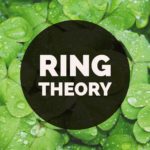This website’s goal is to encourage people to enjoy Mathematics!
This website is no longer maintained by Yu. ST is the new administrator.
Linear Algebra Problems by Topics
Subscribe to Blog via Email
Sponsored Links
Sponsored Links
Categories
- Elementary Number Theory (1)
- Field Theory (27)
- General (7)
- Group Theory (126)
- Linear Algebra (485)
- Math-Magic (1)
- Module Theory (13)
- Probability (33)
- Ring theory (67)
- Welcome (1)
MathJax
Mathematical equations are created by MathJax.
See How to use MathJax in WordPress if you want to write a mathematical blog.
Recent Posts
- How to Prove Markov’s Inequality and Chebyshev’s Inequality
- How to Use the Z-table to Compute Probabilities of Non-Standard Normal Distributions
- Expected Value and Variance of Exponential Random Variable
- Condition that a Function Be a Probability Density Function
- Conditional Probability When the Sum of Two Geometric Random Variables Are Known
Sponsored Links
Top Posts
- How to Diagonalize a Matrix. Step by Step Explanation.
- Find a Basis of the Eigenspace Corresponding to a Given Eigenvalue
- Determine Whether Each Set is a Basis for $\R^3$
- Orthonormal Basis of Null Space and Row Space
- Prove a Group is Abelian if $(ab)^2=a^2b^2$
- 12 Examples of Subsets that Are Not Subspaces of Vector Spaces
- If matrix product $AB$ is a square, then is $BA$ a square matrix?
- The Intersection of Two Subspaces is also a Subspace
- Find the Inverse Matrix Using the Cayley-Hamilton Theorem
- Determine Whether Given Matrices are Similar















